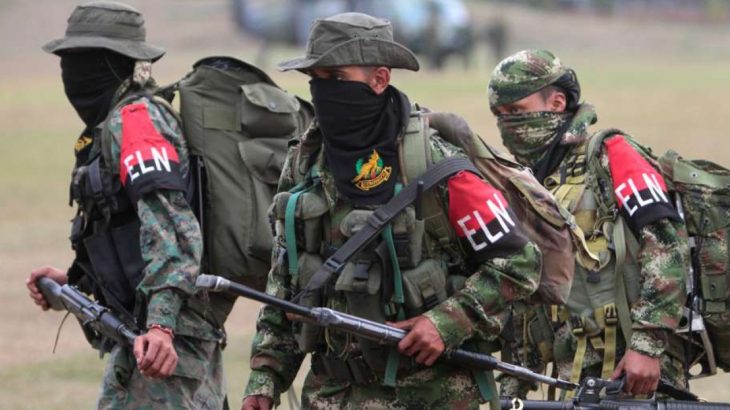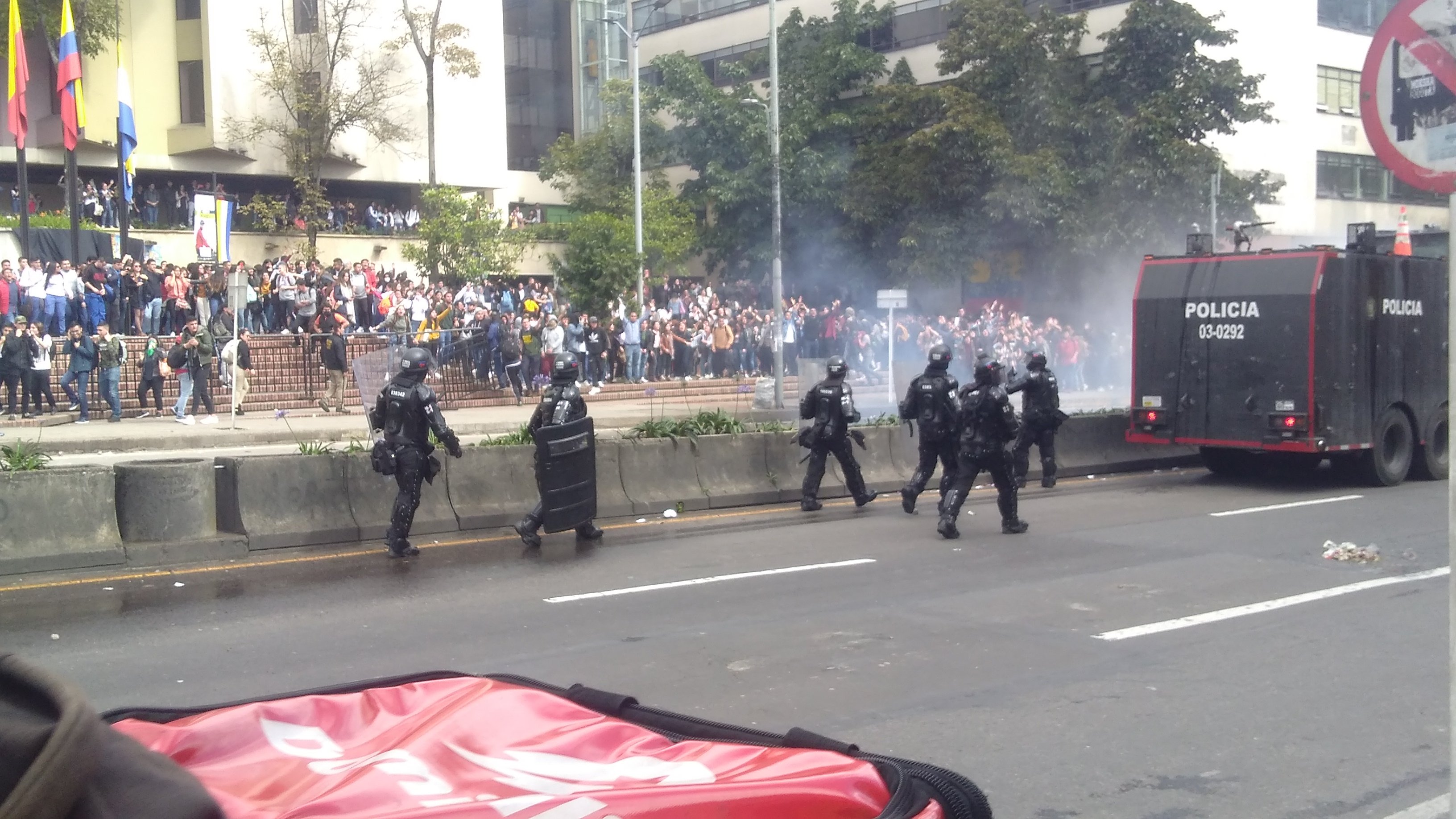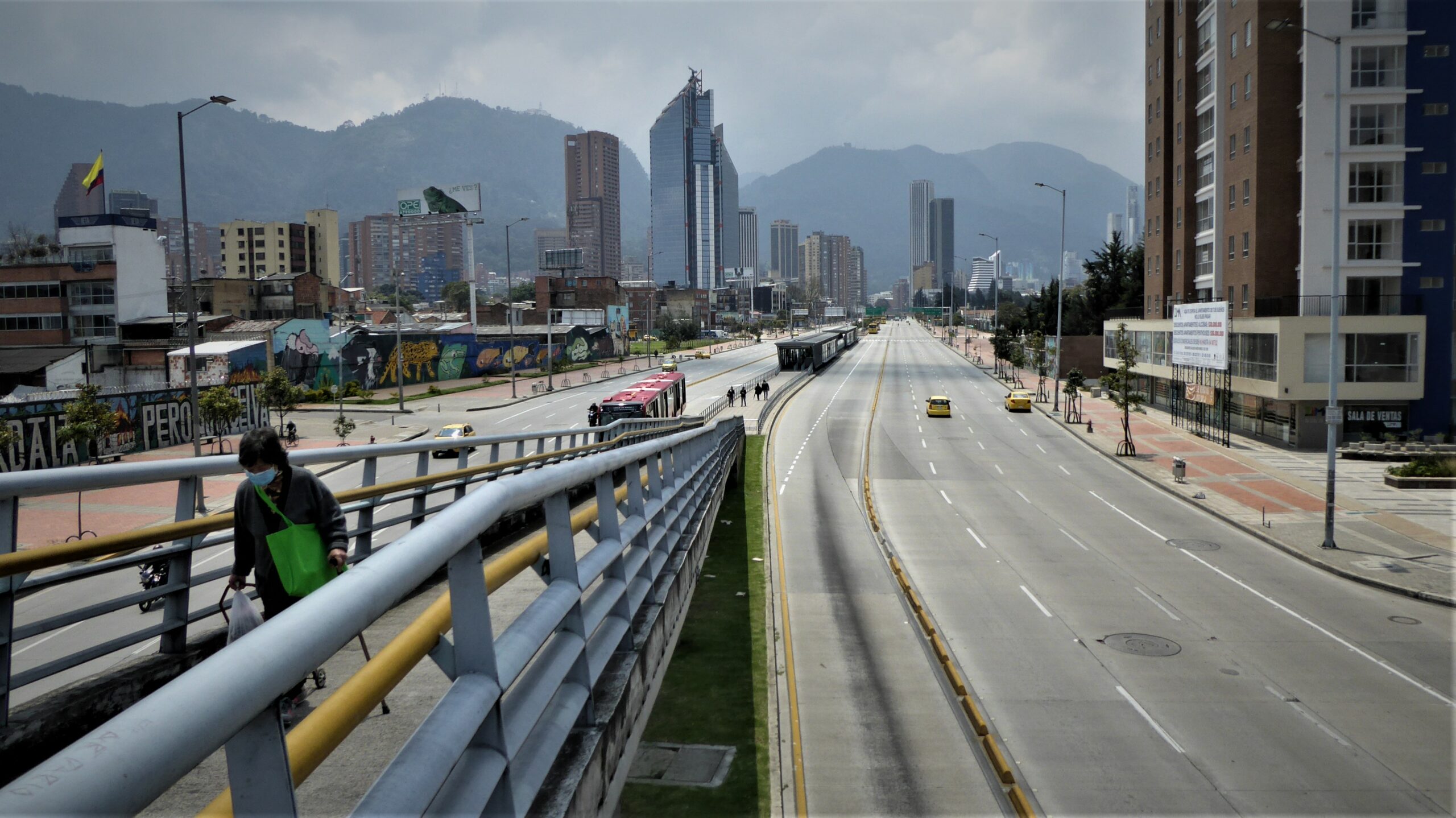
Thursday’s attack by the left-wing National Liberation Army (ELN) guerrilla group at the General Santander Police Academy was an act of terror. President Iván Duque, after consulting with his advisors, announced his unilateral decision to put an end to the peace negotiations with the guerilla group. Although seemingly a domestic issue, the ELN crisis plays into a larger regional and global geopolitical chess game.
Let there be no question about it. The attack perpetrated by the ELN against the General Santander Police Academy was a senseless act of terror that killed 21 people and injured 68 others. As more evidence came to light, including the perpetrator of the crime and his connections to ELN militants, the Attorney General determined that the attack was planned by the ELN.

Duque’s decision to leave the negotiation table with the ELN was not entirely unexpected. His campaign suggested that the guerrilla group was making a mockery of the government and pre-conditioned peace talks to the ELN putting an end their criminal activities. This was a demand the government was not withdrawing from, and also one that the ELN was not willing to accept.
The ELN were waiting for the government to make a decision about the negotiations since Duque’s inauguration. All the while the guerrilla group gave mixed signals regarding their commitment to peace as they conducted attacks against the Caño Limón – Coveñas pipeline, kidnapped individuals along the Venezuelan border where they are strong and, in December, declared a temporary unilateral ceasefire. It appeared the group was the party which appeared to breathe new air into the negotiations. After the attack, the chances of peace with the ELN are slim to none.
An escalation of conflict with the ELN will take a high toll of civilian and military lives on top of potentially costly damage to infrastructure. More importantly, the widely-reported presence of the ELN in Venezuela increases the likelihood of confrontation. We must pause and ask, sincerely, is an escalation of the conflict with the ELN worth it?
The negotiation was doomed from the start
Duque was not a fan of the prior administration’s stance on negotiation with the ELN. Duque repeatedly called the ELN terrorists and the government weak for negotiating with them. Upon taking office, President Duque raised the possibility of studying the current development of negotiations with the guerrilla group for 30 days – a study period which was prolonged until last Thursday.
Duque’s government never appointed a delegation to negotiate with the ELN as the group had not met its prerequisites. Duque insisted that in order to continue negotiations, the ELN must cease all criminal activity and concentrate its forces under international observation. These conditions that the guerrilla group was unlikely to accept also made it difficult for proponents of a negotiated solution within the ELN to convince hardliners.
Before the attack it was clear that the status of the negotiation between the government and the ELN would remain in limbo, as neither side wanted to assume the political cost of terminating the negotiation. The attack showed that the ELN leadership felt that the group had nothing to gain from remaining at the negotiation table and the government would not budge. The citizens’ marches that followed the attack were for the most part peaceful, but also demonstrated the bloodlust that these actions provoke.
Little to gain for the ELN
It is not immediately clear what the ELN won with the attack. It solidified public opinion against them, proved right the government’s skepticism of reaching a negotiated agreement with the group, and boosted the maligned image of president Iván Duque.
The attack demonstrated that the ELN maintain capability and intent to generate political instability and retain the potential to carry out attacks that cause damage in human lives. But it does not demonstrate that the group is a significant security threat to the existence state. The same applies for the government, beyond a stalemate solution with the ELN, there is no feasible strategy to inflict a total defeat on the guerrilla group, more so because of the geopolitical implications of an escalation.
If anything, the attack was a sign inside the ELN that time at the helm was up for individuals pushing for a negotiated solution with the government. The government revoked the safe passage order that it had granted ELN members who were appointed to negotiate in Havana and called on the Cuban government to facilitate their capture.
The group’s leadership will likely become more radical and will not soon attend requests to find a negotiated solution. It also means that the group will likely follow up the attack with others – attacking a similar set of government security forces and infrastructure targets – in areas where the ELN maintains strength.
Geopolitics
A growing conflict with the ELN, whose 2000-strong fighting force has a presence in the departments of Arauca, Norte de Santander, Cauca, Nariño, Chocó, Antioquia and Bolívar will not be simple for the military to address. Aside from domestic fronts, the ELN maintains a rearguard in Venezuela, something that has become more and more difficult to brush under the carpet as the economy and political system of Venezuela crumble.
Defeating the ELN also means escalating a conflict with Venezuela. Escalating the conflict with Venezuela means threatening the existence of the Maduro Regime in that country, which also means endangering the very large interests in natural resources and debt concessions that China and Russia have in Venezuela.
Many commentators, including myself, have suggested that Duque’s response to the attack will shape his presidency. Putting an end to the suspended negotiations was only a coherent step following the attack. Targeting the ELN members who conducted, ordered and planned the attack is necessary and justified for Duque to do following the attack.
Duque, however, should remain aware that he cannot sell military actions against the ELN as an effective strategy that will lead to a result better than a stalemate. That is unless Duque was more eager to beat the drums of war in another direction.
Sergio Guzmán is the Director of Colombia Risk Analysis, a political risk consulting firm based in Bogotá. Follow him on twitter @serguzes and @ColombiaRisk
This opinion column is intended as a space to discuss some of the most pressing issues faced by Colombia and the region in these uncertain times. All opinions and content are solely the opinion of the author and do not represent the viewpoints of The Bogotá Post.





